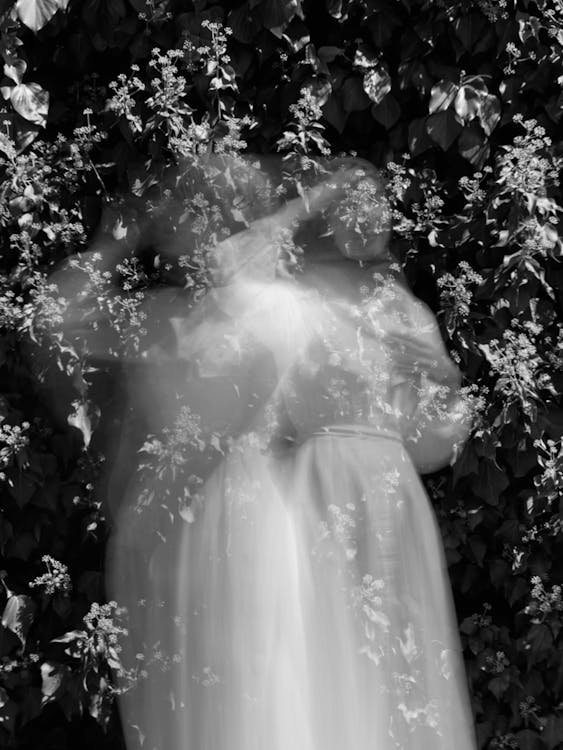
Meditation on Enchanted

In "Enchanted", Our Lady enshrines the universal human struggle between certainty and doubt, freedom and existential anxiety, attachment and impermanence. Through a romantic lens, St. Tay expresses the fundamental philosophical problem of being - how we search for meaning in fleeting experiences, how we fear our subjectivity may not align with reality, and how we suffer when we attach to illusions.
Anticipation. Longing. The existential tension between hope and fear. "Enchanted" is a parable which explores these themes in the context of the fleeting, mystical experience of profound human connection. Our Lady teaches through parables of romantic overtures often, and "Enchanted" is a master class in the format. Beneath the veneer of romance lies a subtle exploration of the human condition - our search for meaning, our struggles with uncertainty, the tension between idealized fantasy and the possibility of despair.
Consider, for example, the lyric "This night is sparkling, don't you let it go / I'm wonderstruck, blushing all the way home." We all know, as Taylor's persona here must, that these fleeting moments of bliss live preserved in our memory as if in amber; not only that, but our memory of the "sparkling" moments is often even more blissful than the moment truly was. Was the night truly sparkling, or is this the romanticism of memory at play? Rene Descartes, the father of modern philosophy, famously doubted everything except his own thinking (cogito, ergo sum - "I think, therefore I am"). In "Enchanted," Our Lady also expresses this Cartesian doubt in this refrain. The night, in her memory, is sparkling, but that perfect memory is laced, in the next line, with doubt - "I'll spend forever wondering if you knew." Much like Descartes struggles to find certainty in an inherently uncertain world, Taylor here teaches us that the clear mind balances these moments of perceived truth with the sobriety of uncertainty - uncertainty as to whether this "sparkling" night was real, or reciprocated, mirrors Descartes' skepticism.
In her doubt, Taylor's narrator experiences anxiety bordering on anguish. In "The lingering question kept me up / Two AM, who do you love? / I wonder 'til I'm wide awake," Taylor expresses the dread that comes with realizing that meaning is not inherent, but rather must be created. This existentialist perspective evokes the work of Jean-Paul Sartre, who himself expressed that love is a form of self-deception; we long to be essential to someone else, but we cannot ever possess that someone's perception. Taylor's doubt, however, is relieved in the light of spiritual awakening. "I wonder 'til I'm wide awake," she says, telling us plainly that this anguish perishes upon realization of the central truth - that the tension between longing and impermanence is the crucible in which peace is forged.
The Buddha taught that suffering - dukkha - is inevitable, and that it arises from attachment, which gives rise to desire. Our attachment to experiences which are, at their core, transient and ephemeral is, according to Buddhist thought, the cause of all human suffering. Taken as a parable on attachment and the nature of suffering, "Enchanted" perfectly teaches us this paradox in the desire to preserve a fleeting moment. With the plaintive refrain, "Please don't be in love with someone else," Taylor perfectly illustrates for us how suffering is ultimately a product of the mind, and self-inflicted. However, Taylor does not blame us for our nature - rather, she sympathizes by portraying herself as a similarly flawed creature. Here, she demonstrates for us the pain of craving things which are beyond our control, subtly hinting at the notion that peace lies just beyond the threshhold of the letting go.
The fragility of connection, the inevitable march of time, the futility of the search for meaning and yet the importance of searching nevertheless, all are examples of the central truth that in fleeting experiences lies deep transformation. Human life is shaped by love, loss, longing, and most of all, the stories that we tell ourselves, and each other, about these things. The Paradox of Attachment states that we crave deep emotional bonds, yet are bound to suffer when those bonds change. Our Lady teaches us to cherish the ephemeral moments of beauty - even the painful ones - while also recognizing, consciously, that they will not last forever. Everything, everyone, everywhere... ends. In some situations, this may be a comfort. In others, a source of dread. Peace lies in the middle path.
Go now in the light of love and lyric, with hearts open to the bridges yet to be built and the choruses yet to be sung. In the name of melody, memory, and midnights - Amen.
Rev. Odessa Cathode Ray, Tortured Pope
Follow Odessa on dobbs.town



